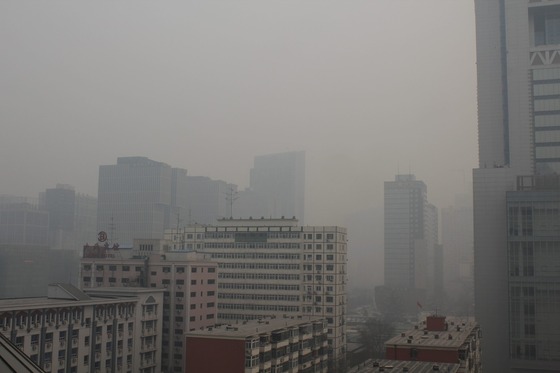It’s not just right-wing hacks like Beck that get China all wrong. Liberals who insist on seeing China as painfully repressed and brutalized can sometimes be even more way off. This piece in today’s Huffington Post is a great example of a left-leaning activist who looks at rebellion in Tibet and other demonstrations and thinks a successful Tiananmen Square-type uprising may be imminent.
His conclusion:
In spite of China’s image as a high-functioning economy, many of the social causes of mass discontent that exploded in the Arab world — endemic corruption, income inequality, labor unrest, inflation, pollution — continue to plague the nation. Since 2008, China has witnessed the Tibetan uprising, the Uyghur uprising in East Turkestan, and 90,000 mass incidents of public unrest each year. The Chinese government spends almost as much money on maintaining internal security as on its national defense. This underlines the overwhelming danger the regime faces from within its own empire.
2011 marks exactly a century since a previous generation of Chinese overthrew the Manchu dynasty and established a republic that lasted till 1949. This week, as organizers of a “Jasmine Revolution” issued calls for protest rallies every Sunday in thirteen cities in China, I started to feel that the stars are aligned against dictatorships everywhere. If the Chinese people seize this opportunity by combining nonviolent tools with strategic planning, they stand to liberate a quarter of the world’s population. It is about time.
This argument is weak on so many levels. The suppression of the Uyghur and Tibetan uprisings is supported by most Chinese people, and will in no way contribute to a spirit of revolution. Most Chinese people, from everything I see and hear, don’t yearn to be “liberated” and resent it when we in the West insist they do. Pointing to Tibet and Xinjiang and concluding Chinese everywhere are in the mood to revolt shows a fundamental misunderstanding of what China is today.
Maybe sometime in the future the disenfranchised of China will find a means to coalesce and stand up en masse to the government. That could really happen, someday. But China’s middle class and many of its working poor, who see a lot of opportunity for their future, are simply not interested, as Yajun eloquently argued.
If the right-wing is paranoid and hysterical about China, the left-wing can be wildly simplistic. And both sides can be very, very ignorant. There’s a lot of anger at the CCP and a lot of discontent among the have-nots. But China simply cannot be compared to Tunisia and Egypt, where many of those organizing the protests were in the middle class and relatively well educated. These were the ones using social media. China’s middle class and its intellectuals are hardly in the mood for open revolt. They don’t want to spoil what they’ve worked so hard to achieve. For them, it’s absolutely not “about time.” And it may never be.




Comments